No. At least in Java. Swapping two primitive integers using a third variable is the fastest (and easiest to understand).
I wrote this code to test it. It compares the two most common techniques I found in various answers: swapping using subtraction and swapping using bitwise xor.
package compareswapmethods;
import java.util.Arrays;
import java.util.Random;
import java.util.Scanner;
public class CompareSwapMethods {
private static final Random rand = new Random();
private static final int ITERATIONS = 1000000;
private static final int MIN_LENGTH = 2;
private static final int MAX_LENGTH = 100;
private static final int MIN_VAL = -100;
private static final int MAX_VAL = 100;
public static void main(String[] args)
{
System.out.println("press enter to start");
Scanner in = new Scanner(System.in);
in.nextLine();
for(int i = 0; i < ITERATIONS; i++)
{
int[] sample1, sample2, sample3;
sample1 = generateRandomArray(MIN_LENGTH, MAX_LENGTH, MIN_VAL, MAX_VAL);
sample2 = Arrays.copyOf(sample1, sample1.length);
sample3 = Arrays.copyOf(sample1, sample2.length);
/*System.out.println(Arrays.toString(sample1));
System.out.println(Arrays.toString(sample2));
System.out.println(Arrays.toString(sample3));*/
int x = randomVal(0, sample1.length-1);
int y = randomVal(0, sample1.length-1);
thirdv(sample1, x, y);
subtractive(sample2, x, y);
bitwise(sample3, x, y);
/*System.out.println(Arrays.toString(sample1));
System.out.println(Arrays.toString(sample2));
System.out.println(Arrays.toString(sample3));
System.out.println("-");*/
}
System.out.println("done");
}
/*swap elements in array using third variable*/
public static void thirdv(int[] arr, int x, int y)
{
int temp = arr[x];
arr[x] = arr[y];
arr[y] = temp;
}
/*swap elements in array using subtraction variable*/
public static void subtractive(int[] arr, int x, int y)
{
arr[x] = arr[x] + arr[y];
arr[y] = arr[x] - arr[y];
arr[x] = arr[x] - arr[y];
}
/*swap elements in array using bitwise xor*/
public static void bitwise(int[] arr, int x, int y)
{
arr[x] ^= arr[y];
arr[y] ^= arr[x];
arr[x] ^= arr[y];
}
/*returns random int between [min, max]*/
public static int randomVal(int min, int max)
{
return min + rand.nextInt(max - min + 1);
}
/*creates array of random length, between [min, max],
and calls poppulateArray on it*/
public static int[] generateRandomArray(int minLength, int maxLength, int minVal, int maxVal)
{
int[] arr = new int[minLength+rand.nextInt((maxLength-minLength)+1)];
populateArray(arr, minVal, maxVal);
return arr;
}
/*assigns random values, in the range of [min, max]
(inclusive), to the elements in arr*/
public static void populateArray(int arr[], int min, int max)
{
Random r = new Random();
for(int i = 0; i < arr.length; i++)
arr[i] = min+r.nextInt((max-min)+1);
}
}
I then used VisualVM to profile and here are the results:

Results do very a bit between tests but I've always seen the thirdv method take the shortest amount of CPU time.
